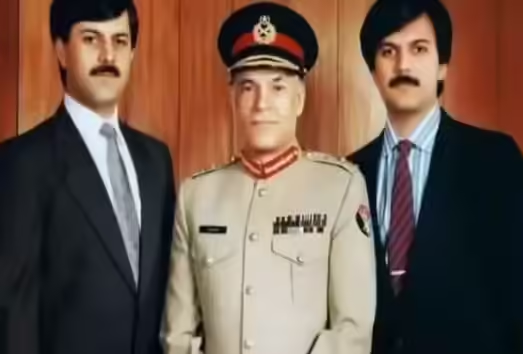The defeat of the Soviet Union in Afghanistan stands as a pivotal moment in 20th-century history. In the 1980s, Pakistan, in collaboration with the Afghan people, waged a covert war against the Soviet forces. Under the leadership of General Akhtar Abdul Rahman, Pakistan’s Inter-Services Intelligence (ISI) played a crucial role in orchestrating this secretive and highly strategic war.
Unfortunately, at a critical juncture during negotiations, opportunistic politicians in Pakistan squandered the political advantages of this military victory. This tragic misstep has led to devastating and long-lasting consequences for Afghanistan, Pakistan, and the wider region—effects that still linger to this day.
The unraveling of this tragedy began in early 1985, when the U.S. administration started engaging in talks aimed at shaping Afghanistan’s post-war political landscape. The U.S. Secretary of State opened formal dialogues with Kremlin, Kabul, and Islamabad. As described by American expert Selig S. Harrison in his article “General Zia, General Akhtar, and the Geneva Accord,” the initial plan was to establish a broad-based interim government in Afghanistan after the withdrawal of Soviet troops. This government would include Mujahideen groups, the People’s Democratic Party of Afghanistan (PDPA), and exiled politicians.
During this period, the name of former Afghan ruler Zahir Shah resurfaced as a potential leader for post-war Afghanistan. Shah was living in exile in Rome at the time. However, the Soviet Union flatly rejected this proposal, insisting that after their withdrawal, a pro-Soviet government would remain in Kabul, maintaining control of both the presidency and military command.
Politically, Pakistan was divided on the issue. Foreign Minister Sahibzada Yaqub Khan supported the idea of a broad-based government and believed that Zahir Shah’s involvement would be advantageous. In contrast, General Akhtar Abdul Rahman firmly disagreed. He argued that a government dominated by the Afghan organizations that had fought against the Soviets would better serve Pakistan’s interests.
Selig S. Harrison further explained that General Zia-ul-Haq backed General Akhtar’s stance, which later became the official position of the Pakistani government. Reports from the battlefield indicated that the pro-Soviet Afghan government would not last long, lending further credibility to General Akhtar’s viewpoint.
However, in Islamabad, Prime Minister Muhammad Khan Junejo, who frequently disagreed with General Zia-ul-Haq on policy matters, began undermining Pakistan’s Afghan policy.
Lasting Impact on the Region
The Soviet-Afghan War left a deep scar on the political and social landscape of Afghanistan and neighboring countries. Pakistan, having supported the Mujahideen during the war, found itself grappling with an influx of refugees, the rise of militant extremism, and an increasingly complex political relationship with Afghanistan.
This geopolitical conflict reshaped global alliances, with Afghanistan becoming a battleground for foreign interests. Even after the Soviet withdrawal, instability persisted, leading to civil war, the rise of the Taliban, and ongoing struggles that continue to affect both regional and international politics.
The failure to create a stable political transition in Afghanistan had repercussions that reverberate even today. The lessons learned from this war highlight the importance of strategic foresight and the long-term impact of short-sighted political decisions.
